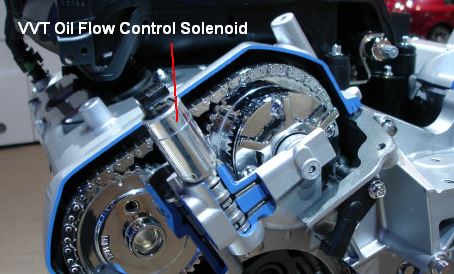
Effects of Dirty Oil and Other Issues on Newer Cars with Variable Valve Timing Solenoids
August 21, 2018 4:26 pmBut what happens when a variable valve timing solenoid begins to wear out or needs to be repaired? While there are some extreme cases that can result in complete engine failure, the more common issues are other types of symptoms you should be aware of. With this in mind, here are some of the most common symptoms and effects of variable valve timing solenoid issues, which you can have diagnosed by working with a professional for auto repair in Madison, TN:
- Dirty engine oil: Variable valve timing solenoids work best and most efficiently when the engine oil is clean and clear of debris, or when it has lost some of its viscosity or lubricity. If the engine oil becomes clogged up with dirt or other debris particles, it will likely result in clogging the passage that runs from the solenoid to the variable valve timing gear and chain. If you haven’t been keeping up with your engine oil changes, your VVT solenoid, chain and gear drive could all sustain some damage. Therefore, make sure you keep up with your oil changes in accordance with the recommendations of your vehicle manufacturer.
- Check engine light: Most of today’s modern vehicles are controlled by an engine control unit (ECU), and almost all components of the vehicle are monitored by that ECU. If one part starts to fail, the ECU will send out a trouble code, alerting the driver with a dashboard warning light. When the check engine light comes on, it could indicate failure of a VVT solenoid. Keep in mind that every vehicle manufacturer uses different codes, so it’s important for you to contact a certified mechanic to inspect the vehicle, download the code and determine the root of the problem.
- Rough idles: The VVT system usually does not activate until your engine reaches a higher RPM or is introduced to situations such as driving uphill. However, if the VVT solenoid malfunctions, there’s a chance it could introduce extra engine oil to the VVT gears, which can cause rough idling of the engine, specifically with regard to the engine’s RPM fluctuating. This could result in engine components wearing down more quickly.
- Less fuel efficiency: Variable valve timing helps ensure valves open and close at the correct moments to enhance fuel efficiency and engine performance. Therefore, a malfunctioning VVT solenoid will likely result in decreased fuel economy due to intake and exhaust valves not opening and closing at the right times.
For more information about VVT technology, contact Rivergate Muffler & Auto Repair for auto repair in Madison, TN. We look forward to assisting you soon.
Categorised in: Automotive Repair Service
This post was written by Writer

Comments are closed here.